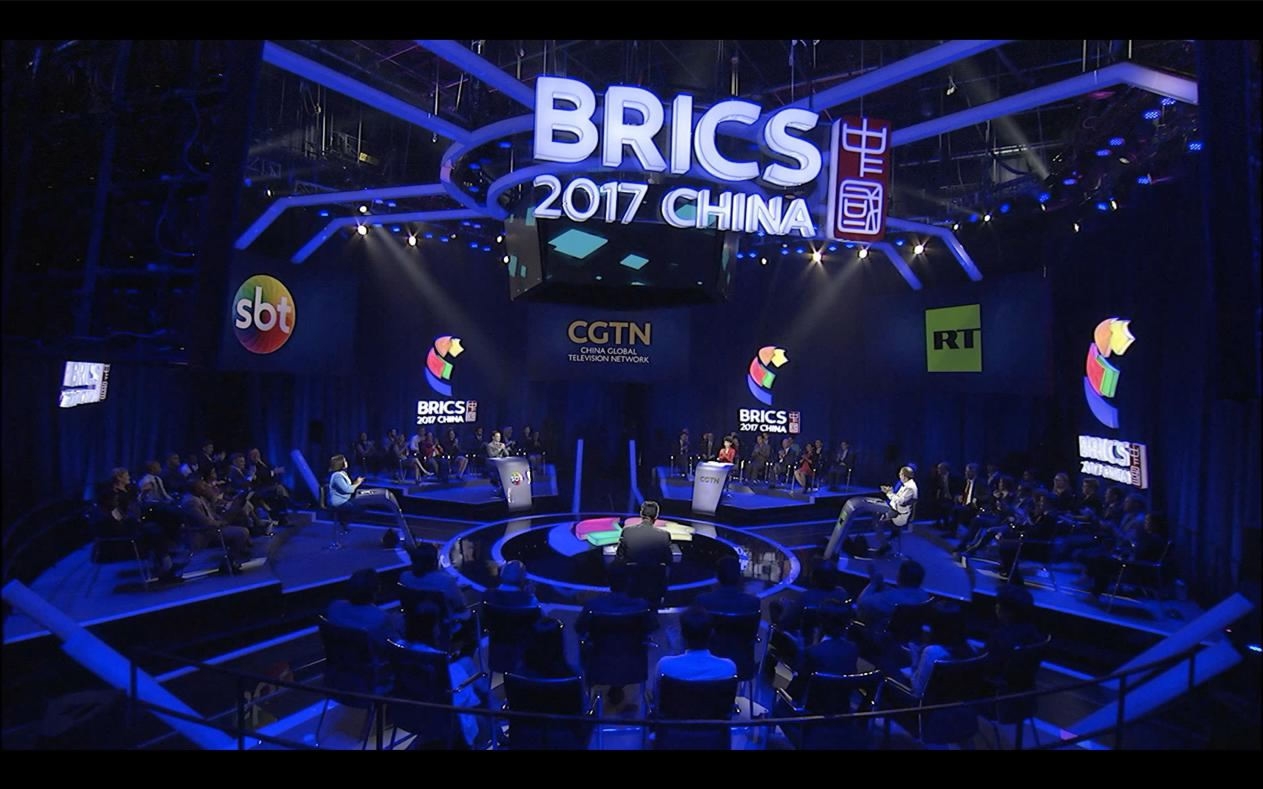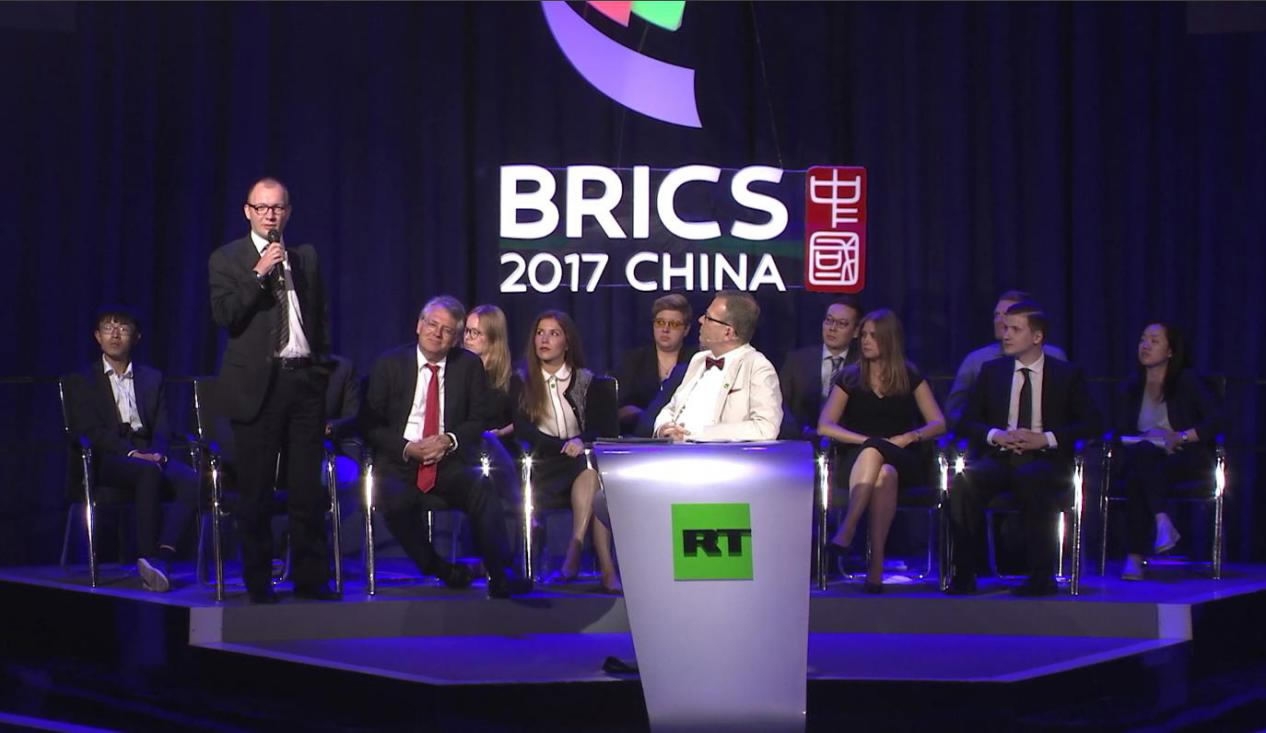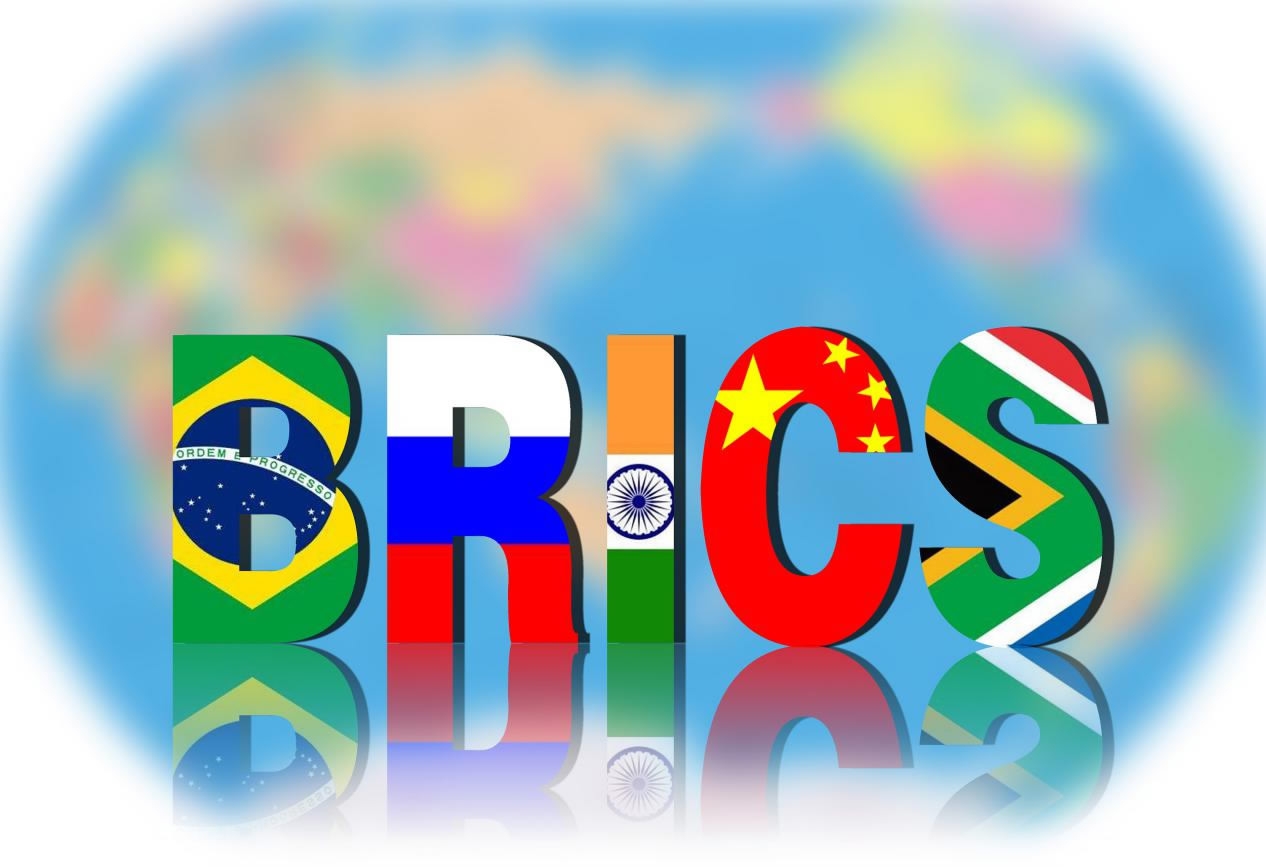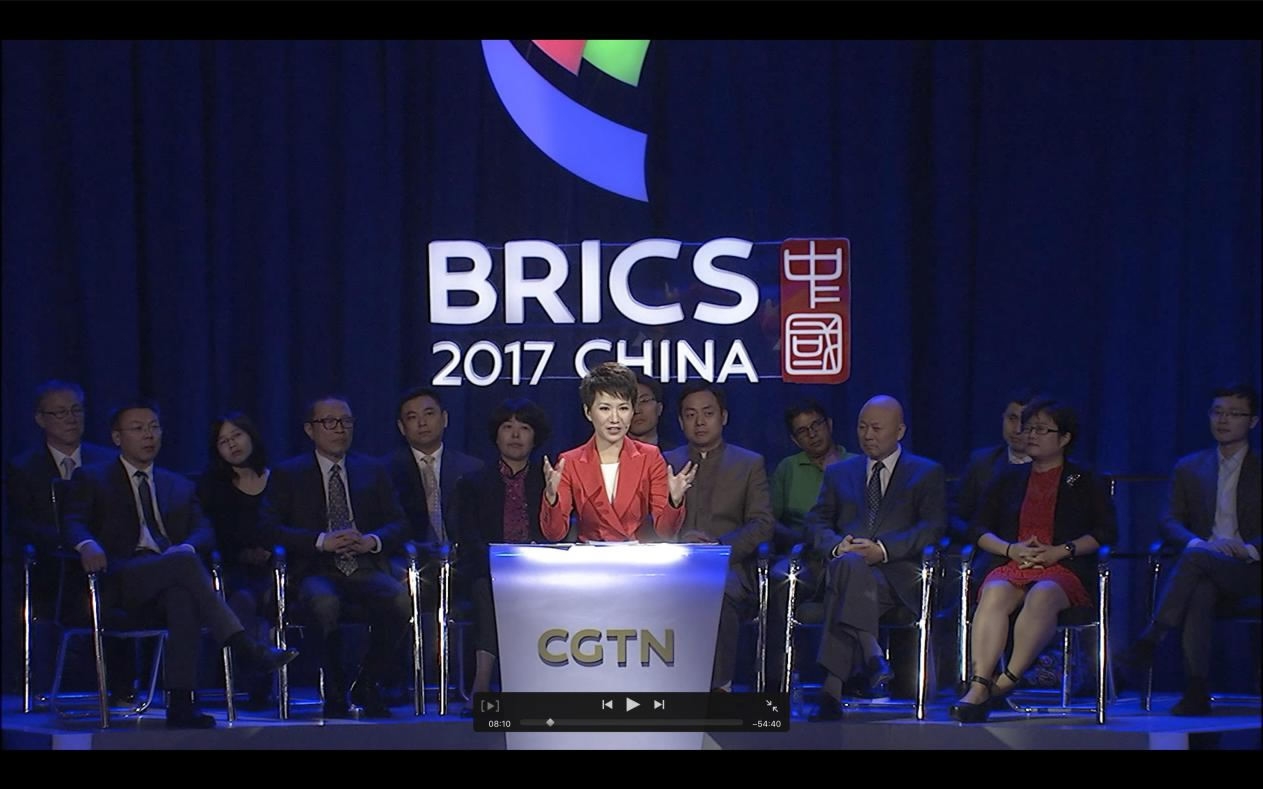
Opinions
17:57, 03-Sep-2017
Unprecedented five-country BRICS talk: A TV first
CGTN

With the ninth BRICS Summit being held in the Chinese city of Xiamen, for the very first time in history, CGTN invited four other TV stations from the other BRICS countries to come to Beijing and produce an-hour special program looking at the opportunities and challenges facing BRICS nations, as well as other developing countries.
Liu Xin from CGTN, Peter Lavelle from RT, Vishnu Som from NDTV, Chriselda Lewis from the South African Broadcasting Corporation, Marcelo Torres from Brazilian Television System SBT, as well as a group of senior representatives from each BRICS country and other nations, had a heated discussion that covered topics ranging from politics, national defense, economics, and climate change. They also discussed the idea of a global community with a common destiny.
The voice of BRICS

Peter Lavelle from RT thought BRICS is a significant grouping to provide an alternative voice, both politically and economically.
“When I hear the phrase in Western media: ‘the international community says, the international community thinks’, what are they talking about? Because they’re not talking about us most of the time. The international community is the United States and its allies. We need to break out of that, we need to take this language to ourselves, we need to appropriate it,” he opined.
“BRICS must speak with one voice in all these multilateral institutions,” Sophie Mokoena, Foreign News Editor from SABC, who thought BRICS cannot be only about development and economic growth, but must also look at the political challenges.
Can BRICS overtake G7?

CFP Photo
CFP Photo
Vishnu Som from NDTV said BRICS is an organization which can in effect threaten or potentially even replace the G7.
“If we look at the creation of the BRICS Bank that’s certainly something which lends a lot of power potentially to all the BRICS nations,” he explained.
Gireesh Chowdhury, owner of a Punjabi Restaurant in Beijing, thought BRICS shouldn’t keep on comparing itself to the G7.
“Between the five countries, we have more people and more money than most countries combined in the whole world. We don’t need to be dependent on anybody. If we can somehow work on better tourism policies, easier visa-free access between our countries, we can get so much more between trade, tourism, and just generally friendship, happiness and all that,” he added.
China’s leadership on the international stage

When Marcelo Torres from Brazilian Television System SBT asked what China's role is in fighting climate change, Liu Xin, the host of the political opinion show, The Point on CGTN, said “China has been saying OK we are one of the biggest polluters but we should not be the only one or take up the biggest share. That is why all the BRICS countries and developing countries have this common but differentiated responsibility.”
She criticized the US’s withdrawal from the Paris Agreement saying that "they have a historical and present responsibility because the United States is among the top three polluters, so they cannot just simply walk away from this.”
This year China has employed a "BRICS Plus" approach by inviting leaders from Egypt, Guinea, Mexico, Tajikistan and Thailand to attend the 2017 summit. Liu Xin explained that BRICS should not be just a small clique of more advanced countries in the developing world, but include other countries that are also developing very fast. She pointed out that “the bigger the group, the stronger voice will be.”
“Though there are differences, BRICS countries are all in the same boat anyway. Just as is implied in the official theme this year: it is a stronger partnership that will bring all of us a brighter future,” Liu Xin concluded.

SITEMAP
Copyright © 2018 CGTN. Beijing ICP prepared NO.16065310-3
Copyright © 2018 CGTN. Beijing ICP prepared NO.16065310-3